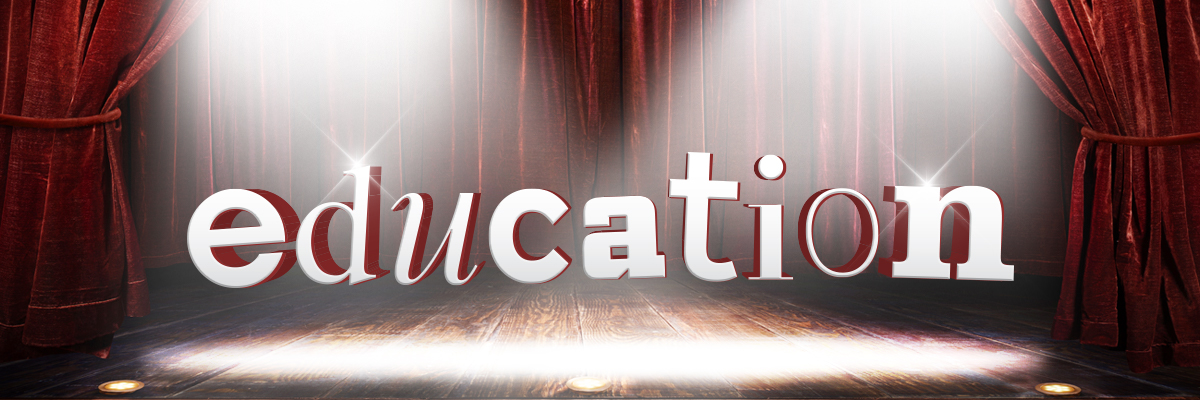Keeping education centre stage in the General Election
How do we keep education to the forefront of this election campaign?
Who should we rely upon to keep the issues of school funding and teacher recruitment centre stage?
Politicians?
Headteachers?
Parents?
Unions?
Students?
Editors?
Former politicians?
Jeremy Corbyn, in his speech to the NAHT conference, said:
The NAHT has correctly pointed out that this election is make or break time for our children’s education system. As all of you will know, the National Audit Office confirms that schools are facing a cut of three billion pounds in real terms by 2020, the first real terms cut in education budgets in a generation. This is an absolutely staggering figure and shows the need for a complete change of direction in how the government of this country treats our schools.
Do our children deserve to be held back by a chronic shortage of teachers?
Do our children deserve to crammed into schools like sardines?
Do our children deserve to be taught by teachers whose morale is at an all-time low?
He went on to say, to enthusiastic applause;
And we must give the teaching profession the recognition it deserves, not only in terms of pay, but also in terms of status in our society. We need to listen to you, the teaching professionals, on how you believe schools can be improved and respect the huge wealth of talent and knowledge that lies in the teaching profession as a whole.
Headteachers up and down the country fear that education issues will be overlooked amid the furore over Brexit during the general election campaign.
Theresa May has cited the need for “strong and stable leadership” during the Brexit process.
The Conservative Party is likely to put the creation of new grammar schools at the centre of its education plans. An election victory would therefore give it a mandate to push through the prime minister’s flagship domestic policy in the face of likely opposition in the House of Lords. A spokesperson for the government, responding to a letter from headteachers expressing their concern over school funding said:
We have protected the core schools budget in real terms since 2010, with school funding at its highest level on record at more than £40bn in 2016-17 – and that is set to rise, as pupil numbers rise over the next two years, to £42bn by 2019-20.
The Liberal Democrats state, on their website;
Education is at the heart of what Liberal Democrats stand for. It is the key to freedom and opportunity, and a vital part of creating the fairer society our Party seeks to build. We believe in a society where every young person, no matter what their background or circumstance, can grow up to achieve anything they set their mind to. It is a tragedy that in 21st Century Britain, the wealth of a child’s parents and where they are born are still indicators of how well they will do at school.
Some fear that education is likely to be ‘forgotten’ in this election. Neil Carmichael, chair of the Commons Education Select Committee, told Tes that he thought education would play “quite a big role” in the election campaign, with funding and the skills gap prominent in the debate.
Kevin Courtney, general secretary of the NUT, the largest teachers’ union, said: “This country must have a government that will invest in education. In the general election, we will press all parties to give commitments that if elected, they will invest and not cut education.”
Exactly 20 years ago, schools were top of the political agenda as Labour swept to victory in the election, with Tony Blair’s “education, education, education” competing for iconic status perhaps only with Bill Clinton’s 1992 “It’s the economy, stupid” campaign slogan.
Today, only 1 per cent of the public believe that education is the most important issue facing the nation, according to an Ipsos MORI poll in January. And in the run-up to the general election on 8 June, schools fail to make it to the top of the list of topics being discussed on Twitter, according to the Political Futures Tracker run by Nesta and the University of Sheffield.
Michael Gove, as education secretary, declared himself the “heir to Blair”, continuing with comprehensive education, school autonomy, “hero heads” and a focus on the poorest children.
On the second day of George Osborne’s editorship of the London Evening Standard, the former chancellor chose to lead the newspaper with a story that said Theresa May was facing the first Tory party uprising of the general election over the new school funding formula.
In an article headlined “Tories: abandon school funding shakeup”, the paper said an investigation by its reporters had revealed that senior Conservatives were “lining up” to urge May to abandon the proposals. Almost 20 Tory politicians were quoted expressing concern about the new national funding formula and calling for a rethink.
The Labour manifesto pledges to abolish university tuition fees, to inject £25 billion into a “national education service”, to abolish testing at KS1 and 2, and extend school counselling at a cost of £90m.
In their manifesto, the Conservatives announced that they would scrap infant free school meals in favour of free breakfasts. It says that they will inject £4 billion into schools and protect pupil premium.
The Liberal Democrats published, in their manifesto, 27 education policies. They include a guarantee that all teachers in state schools will be fully qualified, teachers will be entitled to “high quality professional development” and the Lib Dems would scrap the planned expansion of grammar schools.
Will education occupy the centre stage during this general election or will it be pushed into the wings?





